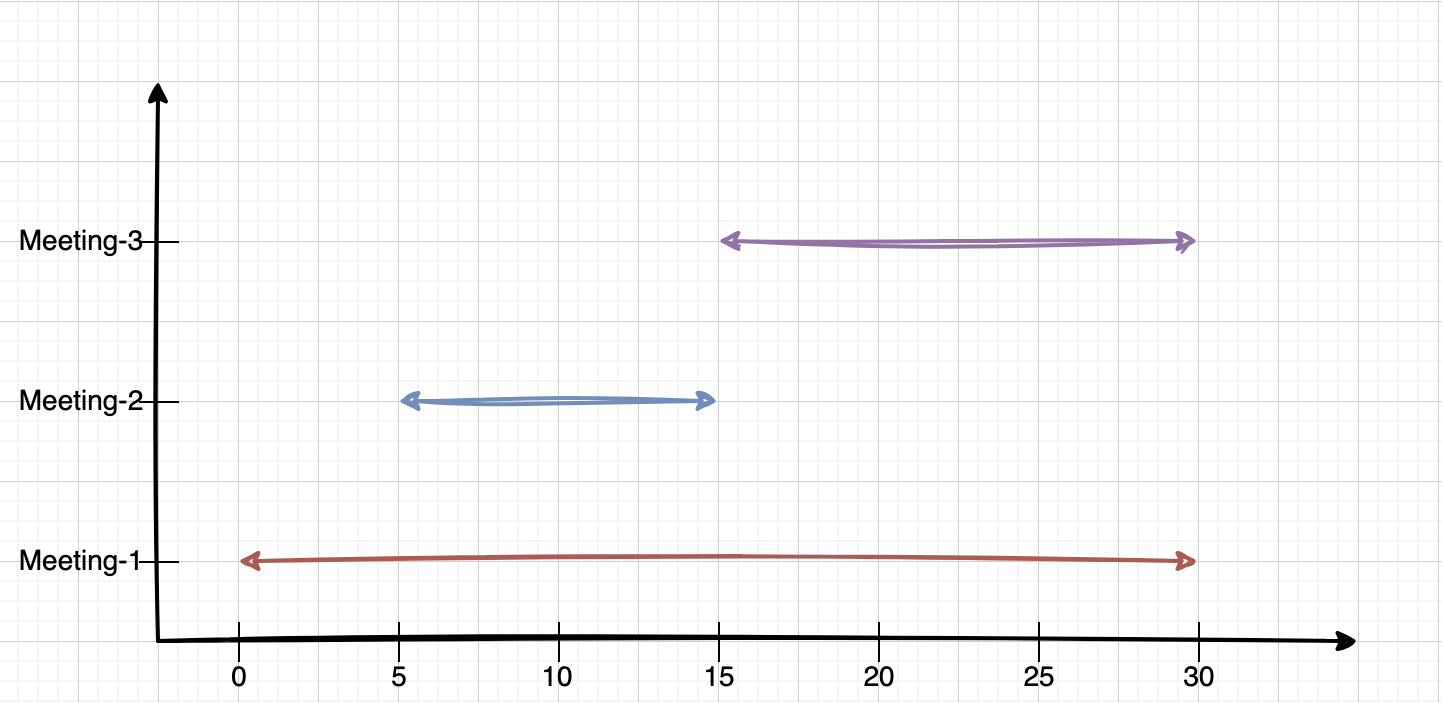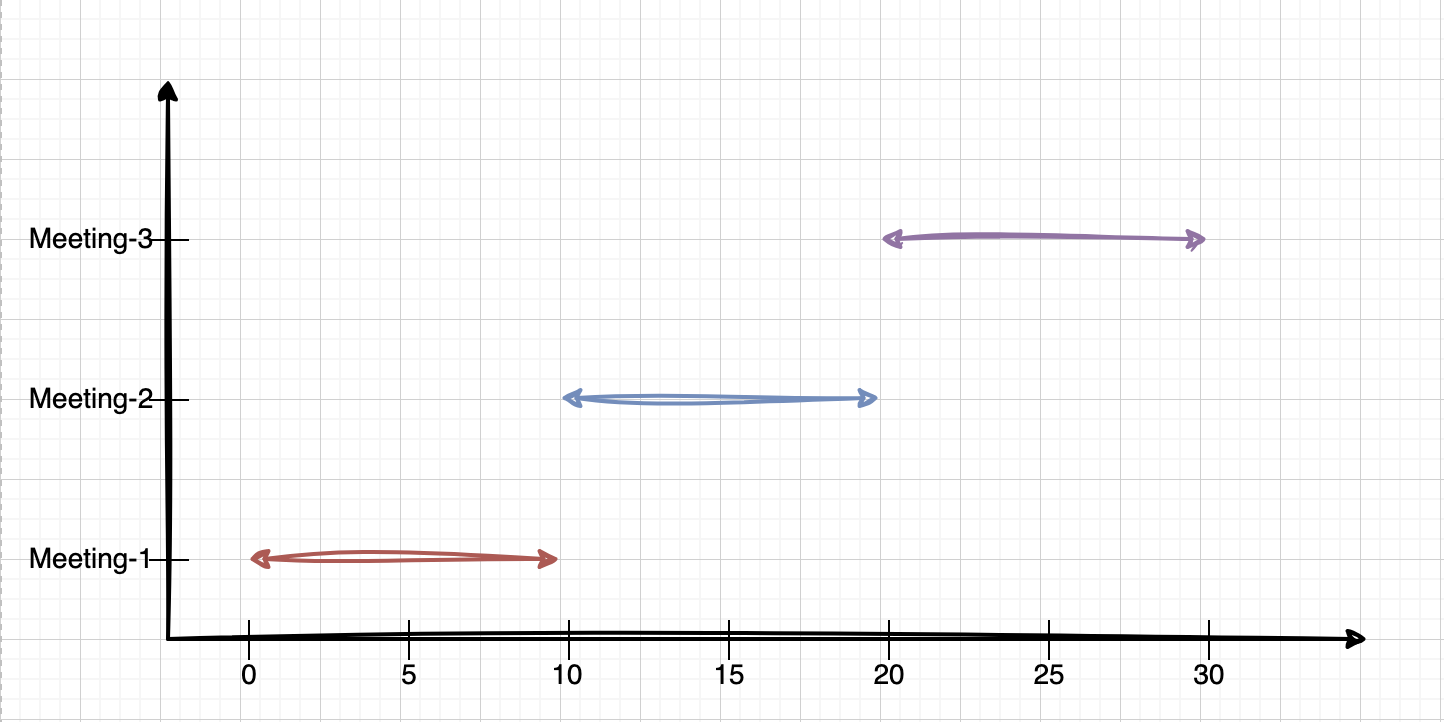Meeting Rooms
Given an array of meeting time intervals where intervals[i] = [starti, endi], determine if a person could attend all meetings.
Problem Statement
LeetCode-252: Given an array of meeting time intervals intervals where $intervals[i] = [start_i, end_i]$, determine if a person could attend all meetings.
Approach
The problem is to check if there are any overlapping intervals. If there are overlapping intervals, then the person cannot attend all the meetings.
A few points to note:
- Zero intervals is a valid case given by the constraints.
- If there is only one interval or no intervals, then the person can attend the meeting.
- The intervals are not sorted.

overlapping intervals

non-overlapping intervals
To determine if the meeting time intervals overlap, we can follow the below approach:
- Sort the intervals by
starttime. This way, each meeting is arranged in the order they occur. - Check adjacent meetings by iterating through the sorted intervals and compare the
starttime of the current meeting with theendtime of the previous meeting. If the current meeting starts before the previous meeting ends, there is an overlap, and the person cannot attend both meetings.
Implementation
Here is a java implementation of the approach:
public boolean canAttendMeetings(int[][] intervals) {
if(intervals.length < 2){
return true;
}
// Sort the intervals based on the start time
Arrays.sort(intervals, (one,two) -> Integer.compare(one[0], two[0]));
for(int i=1; i < intervals.length; i++){
if(intervals[i][0] < intervals[i-1][1]){
return false;
}
}
return true;
}
Complexity Analysis
The time complexity for this approach is $O(n \log n)$, where $n$ is the number of intervals. The complexity is due to sorting the intervals based on the start time. As the sorting is done in-place, the space complexity is $O(1)$.